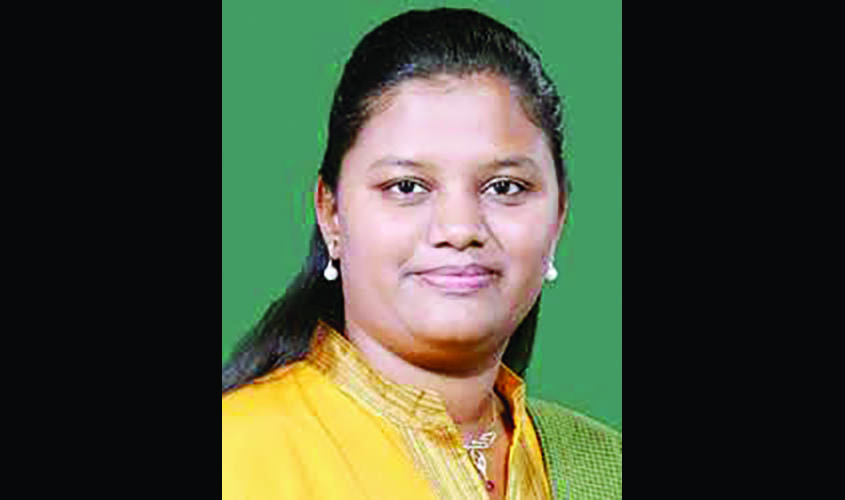Dr Heena Vijaykumar Gavit from Nandurbar constituency in Maharashtra is the only MP from the BJP to ask so many questions in the 16th Lok Sabha.
It could be intimidating to question the government when your party is in power, but this has not discouraged Dr Heena Vijaykumar Gavit from questioning the government, repeatedly.
The only Member of Parliament (MP) in Lok Sabha from the Bharatiya Janata Party (BJP) to ask more than 900 questions in the 16th Lok Sabha is Dr Gavit from Nandurbar constituency in Maharashtra. Only nine MPs have crossed the 900-mark in the category of “maximum questions asked”, among which the only BJP MP, Dr Gavit ranks seventh with a total of 925 questions, zero private members bill, participation in 55 debates and 82% attendance.
On the list of MPs who asked the maximum number of questions in Lok Sabha, there is no other BJP MP in the top 10. Ranking 14th is BJP MP Sudhir Gupta from Mandsour constituency, Madhya Pradesh, for asking 852 questions.
The MP who raised the highest number of questions is Nationalist Congress Party’s Supriya Sule from Baramati constituency in Maharashtra with 1,007 questions asked. Dr Gavit and Sule are the only two women parliamentarians who made it to the top 20 of the list.
A first time parliamentarian, Dr Gavit has asked questions across ministries. Speaking to The Sunday Guardian, Dr Gavit said, “As a parliamentarian, looking beyond my own constituency is a must, which is why I ask questions across ministries. I come from a tribal area, am a woman and a qualified doctor, but I have asked questions about consumer affairs, mines, etc. Asking questions does not mean that I am questioning my own party. BJP is doing well in power. Sometimes we ask for simple clarifications or when we want the minister to take notice of a particular issue. It is a healthy practice.”
In the winter session of 2017, Dr Gavit had raised a question in the Lok Sabha about the high number of C-sections being conducted in the country under the Central Government Health Scheme (CGHS), following which the Maharashtra government set up an investigation committee to look into the reasons why there was a low rate of normal deliveries and a high rate of C-sections in the state.
Dr Gavit said, “I wanted to know the reason behind what kind of complication in pregnancy has become so common that a huge number of women had to undergo C-sections for delivering their child. We cannot allow hospitals to conduct C-sections just because they are covered under CGHS. The Maharashtra government’s enquiry report is awaited, but it would be good if states like Punjab etc, too, took similar initiatives.”
If on the one hand, Dr Gavit’s performance as a first time legislator is quite impressive, there are BJP MPs who have asked zero questions in the Lok Sabha like Shatrughan Sinha from Patna Sahib constituency, Bihar, who is otherwise known to be vocal in his criticism of the BJP government; Sarbananda Sonowal from Lakhimpur constituency, Assam; and Lal Krishna Advani, BJP’s senior most parliamentarian are among the others.
According to PRS Legislative Research, the national average of questions asked is 260, whereas the number of parliamentarians who asked zero questions is 48. Among some crucial Opposition leaders who did not ask any questions in the Lok Sabha are Sonia Gandhi, Rahul Gandhi, Dimple Yadav, Mulayam Singh Yadav, H.D. Deve Gowda, etc.
Reflecting on the data, M.R. Madhavan, president of PRS, said, “These figures can tell you about quantity, but not the quality. Maybe an MP has raised only 100-150 questions, but those are genuinely revealing questions—then, it should not be seen as a poor performance on the part of that legislator. At the same time, there is really no defence for zero questions asked. A parliamentarian when standing in the question hour or zero hour of Parliament, is a legislator standing in his individual capacity. At that time, you do not belong to any particular party. More participation, especially by senior leaders, would be a welcome change.”

